Conflict Zones
Fifty years after fall of Phnom Penh, history weighs on Cambodian politics | Conflict News
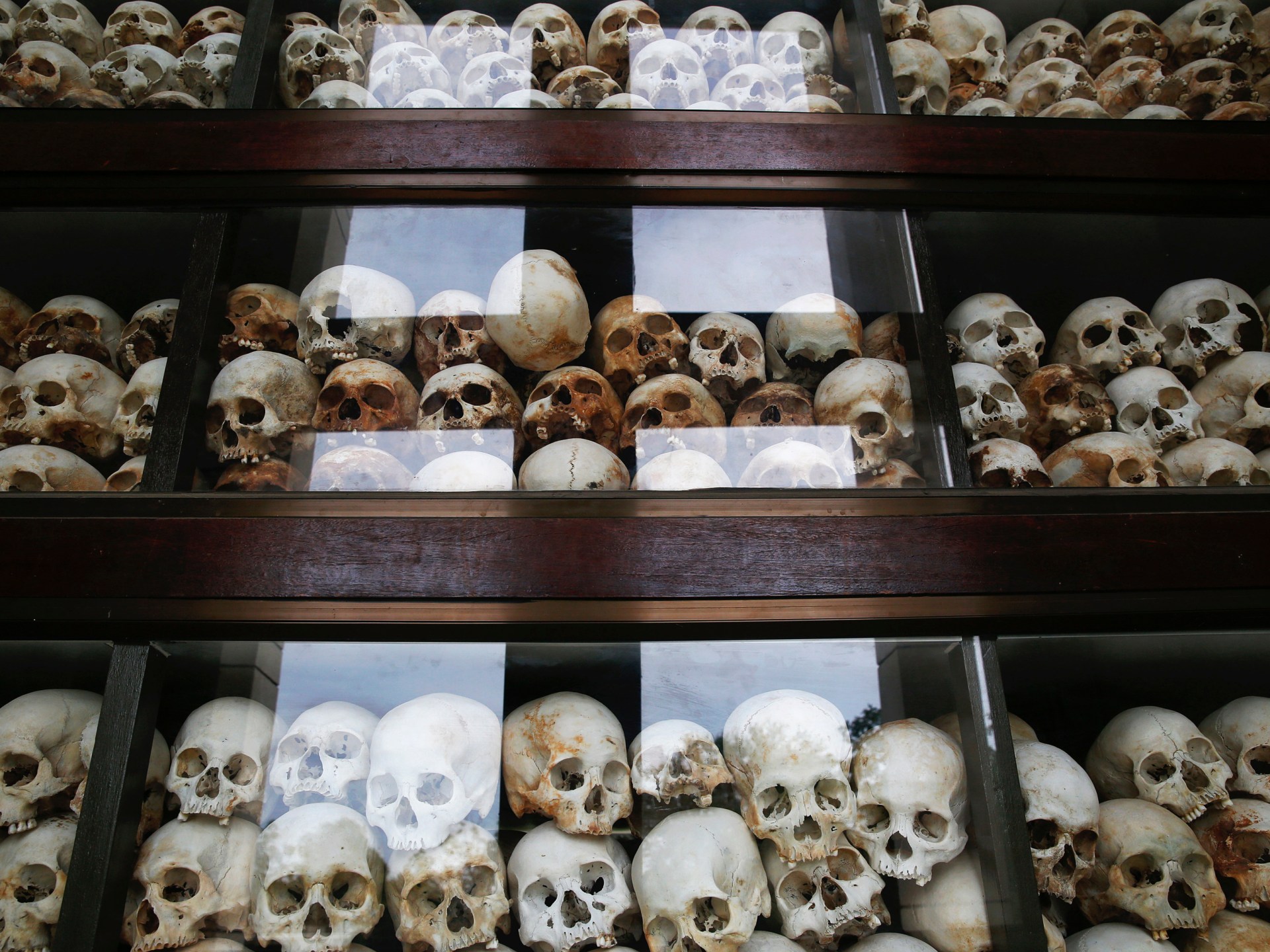
Fifty years after the fall of Phnom Penh to the Khmer Rouge rebel army, the events of April 17, 1975 continue to cast a long shadow over Cambodia and its political system.
Emerging from the bloodshed and chaos of the spreading war in neighbouring Vietnam, Pol Pot’s radical peasant movement rose up and defeated the United States-backed regime of General Lon Nol.
The war culminated five decades ago on Thursday, with Pol Pot’s forces sweeping into Cambodia’s capital and ordering the city’s more than two million people into the countryside with little more than the belongings they could carry.
With Cambodia’s urban centres abandoned, the Khmer Rouge embarked on rebuilding the country from “Year Zero”, transforming it into an agrarian, classless society.
In less than four years under Pol Pot’s rule, between 1.5 and three million people were dead. They would also almost wipe out Cambodia’s rich cultural history and religion.
Many Cambodians were brutally killed in the Khmer Rouge’s “killing fields”, but far more died of starvation, disease and exhaustion labouring on collective farms to build the Communist regime’s rural utopia.
In late December 1978, Vietnam invaded alongside Cambodian defectors, toppling the Khmer Rouge from power on January 7, 1979. It is from this point onwards that popular knowledge of Cambodia’s contemporary tragic history typically ends, picking up in the mid-2000s with the start of the United Nations-backed war crimes tribunal in Phnom Penh, where former regime leaders were put on trial.
For many Cambodians, however, rather than being relegated to history books, the 1975 fall of Phnom Penh and the toppling of the Khmer Rouge in 1979 remain alive and well, embedded in the Cambodian political system.
That tumultuous Khmer Rouge period is still used to justify the long-running rule of the Cambodian People’s Party (CPP) under varying forms since 1979, and the personal rule of CPP leader Hun Sen and his family since 1985, according to analysts. It was the now ageing senior leadership of the CPP who joined with Vietnamese forces to oust Pol Pot in 1979.
While memories of those times are fading, the CPP’s grip on power is as firm as ever in the decades since the late 1970s.
‘The making of a political system’
The ruling CPP see “themselves as the saviour and the guardian of the country”, said Aun Chhengpor, a policy researcher at the Future Forum think tank in Phnom Penh.
“It explains the making of a political system as it is today,” he said, noting that the CPP has long done what it required to “ensure that they are still there at the helm … at any cost”.
Most Cambodians have now accepted a system where peace and stability matter above all else.
“There seems to be an unwritten social contract between the ruling establishment and the population that, as long as the CPP provides relative peace and a stable economy, the population will leave governance and politics to the CPP,” Aun Chhengpor said.
“The bigger picture is how the CPP perceives itself and its historic role in modern Cambodia. It’s not that different from how the palace-military establishment in Thailand or the Communist Party in Vietnam see their roles in their respective countries,” he said.

The CPP headed a Vietnamese-backed regime for a decade, from 1979 to 1989, bringing relative order back to Cambodia after the Khmer Rouge, even as fighting persisted in many parts of the country as Pol Pot’s fighters tried to reassert control.
With support dwindling from the Soviet Union in the last days of the Cold War and an economically and militarily exhausted Vietnam withdrawing from Cambodia, Hun Sen, by then the leader of the country, agreed to hold elections as part of a settlement to end his country’s civil war. From 1991 to 1993, Cambodia was administered by the UN Transitional Authority in Cambodia (UNTAC).
The Cambodian monarchy was formally re-established, and elections were held for the first time in decades in 1993. The last Khmer Rouge soldiers surrendered in 1999, symbolically closing a chapter on one of the 20th century’s bloodiest conflicts.
Despite a bumpy road forward, there were initial hopes for Cambodian democracy.
The royalist National United Front for an Independent, Neutral, Peaceful and Cooperative Cambodia Party – better known by its acronym FUNCINPEC – won the UN-administered elections in 1993. Faced with defeat, the CPP refused to cede power.
The late King Norodom Sihanouk stepped in to broker an agreement between both sides that preserved the hard-won peace and made the election a relative success. The international community breathed a sigh of relief as the UNTAC mission in Cambodia had been the largest and costliest at that time for the world body, and UN member states were desperate to declare their investment in nation rebuilding a success.
Ruling jointly under a power-sharing agreement with CPP and FUNCINPEC co-prime ministers, the unsteady alliance of former enemies held for four years until ending in a swift and bloody coup by Hun Sen in 1997.
Mu Sochua, an exiled opposition leader who now heads the nonprofit Khmer Movement for Democracy, told Al Jazeera that the CPP’s resistance to a democratic transfer of power in 1993 continues to reverberate throughout Cambodia today.
“The failure of the transfer of power in 1993 and the deal the King made at the time … was a bad deal. And the UN went along because the UN wanted to close shop,” she told Al Jazeera from the US, where she lives in exile after being forced to flee the CPP’s intensifying authoritarianism at home.
“The transitional period, the transfer of power … which was the will of the people, never happened,” Mu Sochua said.
End of warfare does not mean the beginning of peace
Following the coup in 1997, the CPP did not come close to losing power again until 2013, when they were challenged by the widely popular Cambodian National Rescue Party (CNRP).
By the time of the next general election in 2018, the CNRP was banned from politics by the country’s less-than-independent courts, and many of the opposition leaders were forced to flee the country or ended up in prison on politically motivated charges.
Unhindered by a viable political challenger, Hun Sen’s CPP went on to win all seats in the 2018 national election, and all but five of the 125 parliamentary seats contested during the last general election in 2023.

The CPP has also firmly aligned with China, and the country’s once vibrant free press has been shut down, and civil society organisations cowed into silence.
After notching up 38 years in power, Hun Sen stepped aside as prime minister in 2023 to make way for his son Hun Manet – a sign that the CPP-led political machine has eyes on dynastic, multi-generational rule.
But new challenges have emerged in Cambodia’s post-war decades of relative prosperity, huge inequality and de facto one-party rule.
Cambodia’s booming microcredit industry was intended to help lift Cambodians out of poverty, but the industry has instead burdened families with high levels of personal debt. One estimate put the figure at more than $16bn in a country with a population of just 17.4 million and a gross domestic product (GDP) of $42bn in 2023, according to World Bank estimates.
Aun Chhengpor told Al Jazeera there are signs the government is taking note of these emerging issues and demographic changes.
Hun Manet’s cabinet is shifting towards “performance-based legitimacy” because they lack the “political capital” once bestowed by the public on those who liberated the country from the Khmer Rouge.
“The proportion of the population that remembers the Khmer Rouge, or that has usable memories of that period, is shrinking year by year,” said Sebastian Strangio, author of Hun Sen’s Cambodia.
“I don’t think [the CPP ‘s legacy] is sufficient for the majority of the population born since the end of the Cold War,” Strangio told Al Jazeera.
Now, there even appears to be room for a limited amount of popular opposition, analyst Aun Chhengpor said.
In January, Cambodian farmers blockaded a main highway to protest against the low prices of their goods, suggesting there may be “some space” in the political system for localized dissent on community-based issues, he said.
“[It] will be an uphill struggle for the fractured political opposition to thrive – not to mention to organise among themselves and, let alone, have the hope of winning a general election,” Aun Chhengpor said.
“However, there are indications that the CPP still somehow believes in the multiparty system and limited democracy in the way that they can have a say on when and how much democracy,” he added.
Speaking in exile from the US, Mu Sochua had a dimmer view of Cambodia’s situation.
The same month as the farmer protests in Cambodia, a former Cambodian opposition member of parliament was shot dead in broad daylight on a street in Thailand’s capital, Bangkok.
The brazen assassination of Lim Kimya, 74, a dual Cambodian-French citizen, recalled memories of the chaotic political violence of the 1990s and early 2000s in Cambodia.
Peace and stability, Mu Sochua said, exist only on the surface in Cambodia, where still waters run deep.
“If politics and the space for people to engage in politics is non-existent, what dominates then is not peace,” she said.
“It’s still the feeling of war, of insecurity, of the lack of freedom,” she told Al Jazeera.
“After the war, 50 years later, at least there is no bloodshed, but that alone does not mean there is peace.”
Conflict Zones
Trump says US may ‘pass’ on helping end war if Russia, Ukraine resist deal | Russia-Ukraine war News
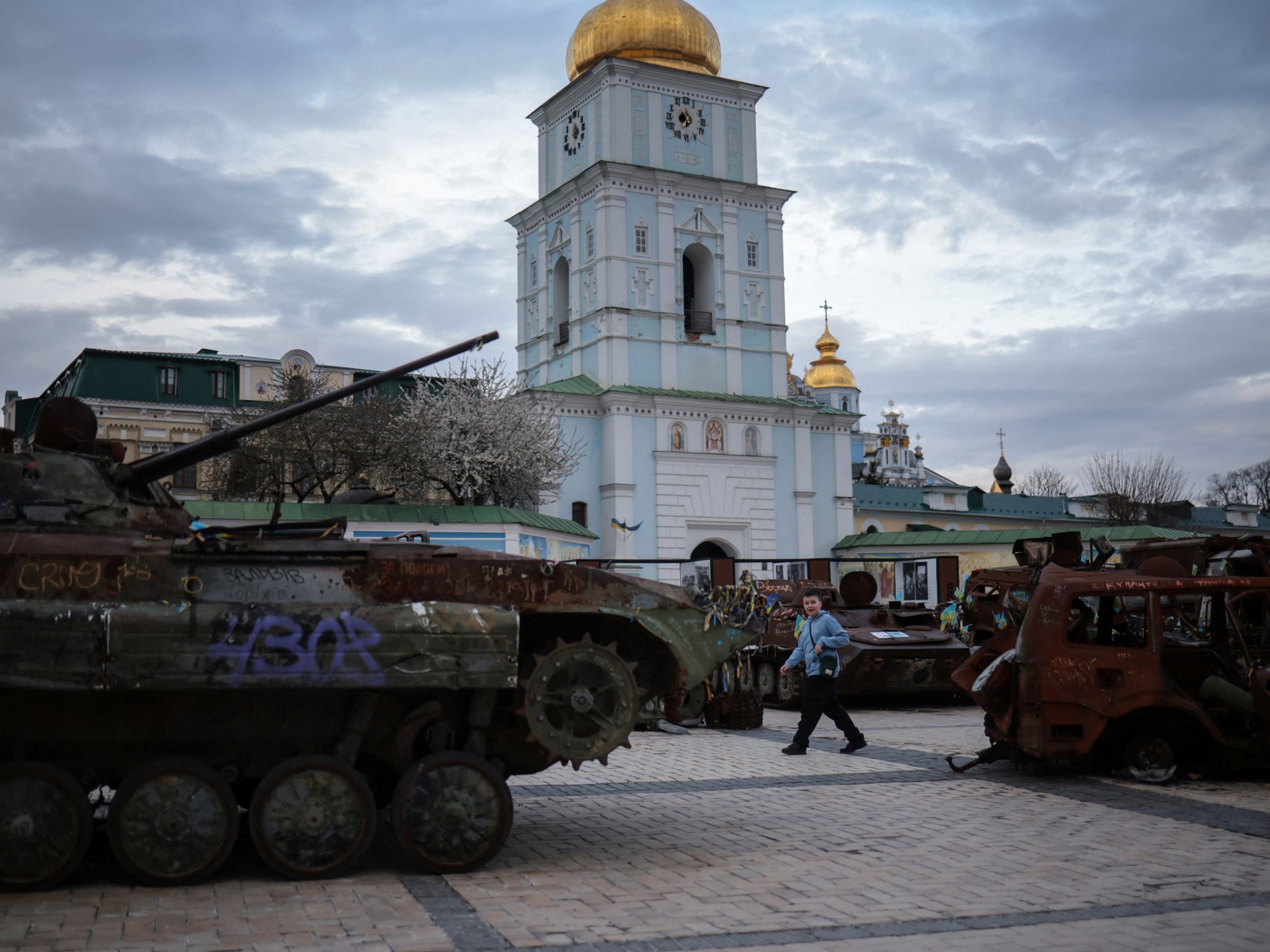
President Donald Trump says the United States will “take a pass” on trying to resolve the Russia-Ukraine war if either Moscow or Kyiv makes it too difficult to end the conflict.
Trump was speaking after US Secretary of State Marco Rubio commented – following talks with European allies in Paris – that Washington would “move on” if a truce did not seem “doable” within days.
The US president refused on Friday to cast blame on either Russian President Vladimir Putin, who ordered the February 2022 full-scale invasion of pro-Western Ukraine, or Ukrainian President Volodymyr Zelenskyy. But he insisted both sides had to make progress.
“Now, if, for some reason, one of the two parties makes it very difficult, we’re just going to say: ‘You’re foolish. You’re fools. You’re horrible people’ – and we’re going to just take a pass,” Trump said.
“But, hopefully, we won’t have to do that.”
Rubio further suggested on Friday that Trump’s patience towards the negotiations is running thin.
“If it’s not possible, if we’re so far apart that this is not going to happen, then I think the president is probably at a point where he’s going to say, ‘Well, we’re done,’” he said.
Trump told reporters on Friday, however, that he did not want to say he was walking away from the talks. He said he still believes there is a good chance to end the conflict.
“It’s coming to a head right now,” he said.
US Vice President JD Vance also said he was “optimistic” a resolution could be reached, while speaking on a trip to Rome.
‘Trying to help’
Ukraine has agreed to a full temporary ceasefire and accused Russia of stalling on a deal to get a better negotiating position.
Putin last month rejected a joint US-Ukrainian proposal for a full and unconditional pause in the conflict, while the Kremlin has made a truce in the Black Sea conditional on the West lifting certain sanctions.
When asked if Putin was stalling, Trump, who held direct talks with the Russian leader in February, said: “I hope not … I’ll let you know soon.”
Trump also denied he was being “played” by the former KGB agent, who denied Russia was going to invade right up until the eve of the attack.
“Nobody’s playing me, I’m trying to help,” Trump said.
Russia’s Foreign Minister Sergey Lavrov said in an interview with the Kommersant newspaper published on Monday that it is “not easy” to agree on “key components” of a peace deal.
He did, however, concede that the Trump administration is trying to understand the “root cause” of the conflict, which he said was triggered by “the actions of Washington and Brussels” in having “brought the current regime to power in Ukraine”.
Fighting continues
Amid ceasefire negotiations, on the front line on Friday, a Russian missile strike killed one person in the northeastern Ukrainian city of Kharkiv, with a separate drone attack killing another person in the nearby city of Sumy.
At least five children were among dozens of people injured in Friday morning’s attack on Kharkiv that damaged 15 residential buildings, a business and an educational facility, according to Kharkiv Mayor Ihor Terekhov and emergency services.
Reporting from Kyiv, Al Jazeera’s Zein Basravi said Russia also targeted Lviv, Dnipro, Mykolaiv and Kyiv.
“We saw multiple missile, drone, artillery and rocket attacks in cities across the country about 5am local time when curfews come to a close and people begin their daily lives,” he said.
“[In Kharkiv], civilian infrastructure was damaged, one person was killed, and 74 were injured. Of the 74, five were children,” Basravi reported.
President Zelenskyy said on Thursday that although Russia had seemingly scaled back its targeting of energy infrastructure, the overall volume of missile and drone attacks remained unchanged. It is striking Ukraine’s civilian sites instead, he added.
Russia has said it had hit “key drone production sites” and Ukrainian military airfields.
Moscow also warned on Friday of potential escalation if Germany proceeds with plans to send Taurus long-range missiles to Ukraine. Speaking at the United Nations on Thursday, Russia’s ambassador, Vassily Nebenzia, declared that such a move would mark Germany’s direct entry into the war.
“These countries are waging a war against Russia using their proxy forces,” he said. “Delivering Taurus missiles would be another step toward escalation.”
Conflict Zones
‘How do I live like this?’ asks Gaza boy who lost arms in Israeli attack | Gaza News
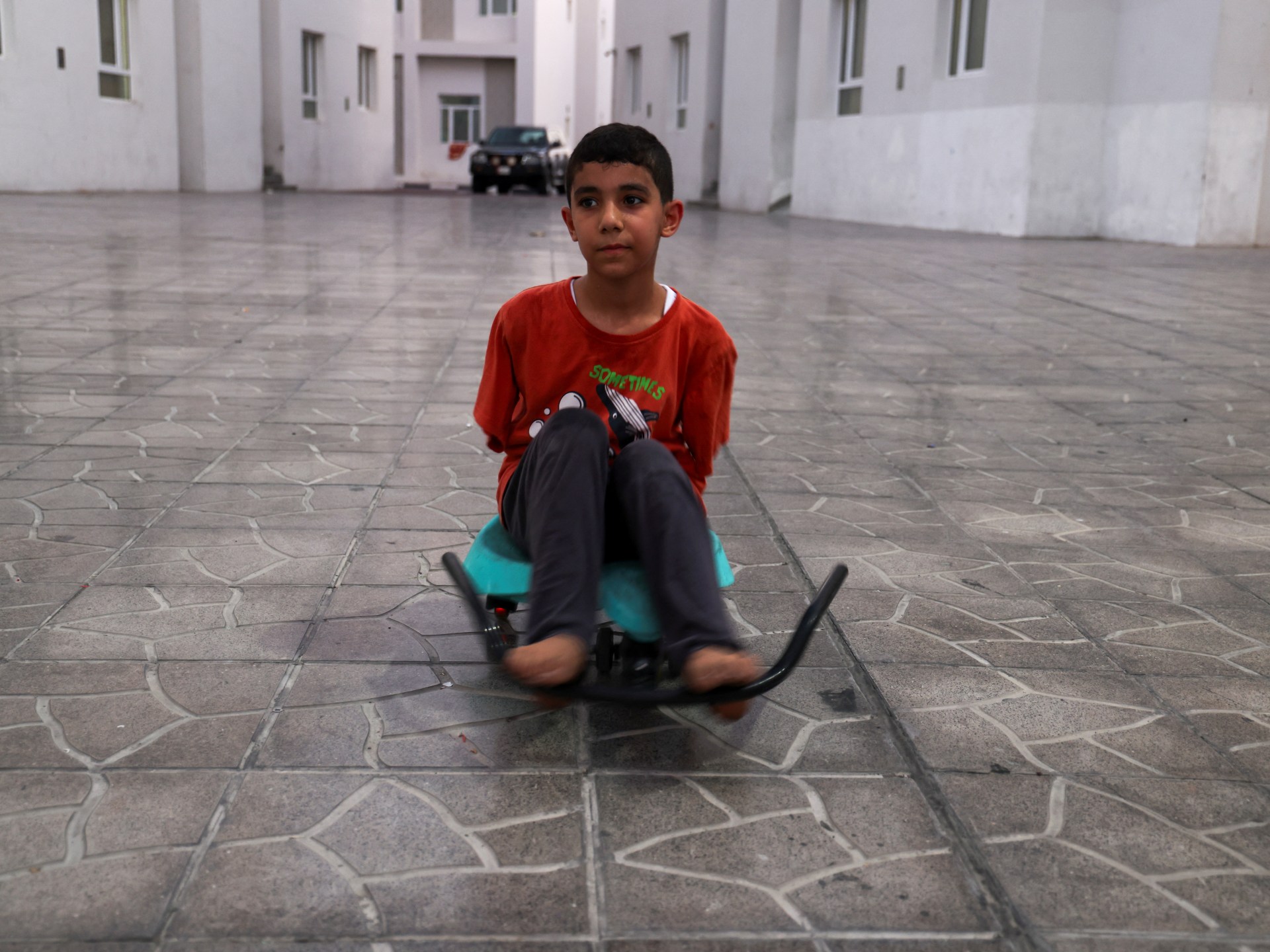
An image of Mahmoud Ajjour, 9, who was severely wounded in an Israeli strike, won the 2025 World Press Photo of the Year award.
A Palestinian child who was severely wounded in an Israeli drone attack on Gaza last year, and who was pictured in an image that won the 2025 World Press Photo of the Year award, says he has been struggling to adapt to life since losing both his arms in the explosion.
Speaking to Al Jazeera from Doha, Qatar, where he has been receiving treatment, nine-year-old Mahmoud Ajjour recalled the moment the bomb exploded, targeting his home in March 2024.
At first, Ajjour, who hails from Gaza City’s old town, said he did not realise he was wounded.
“I thought I had simply fallen. But I found myself on the ground, exhausted, and wondering what had happened,” he told Al Jazeera.
In reality, one arm “flew off, and one flew and fell right beside me”, he added.
Still unaware that he had sustained serious wounds – wounds that mutilated his entire body – Ajjour said he looked around and saw his arms. Although they looked familiar, his brain still could not comprehend that they had been blown off.
“My mother then told me that I lost my arms,” Ajjour recalled. “I started crying. I was very sad, and my mental state was very bad.”
His mental health deteriorated further when he, like many others in Gaza, had to undergo surgery without anaesthetics due to a severe lack of medical supplies. Throughout the war, Israeli forces have largely kept vital border crossings shut, preventing the entry of much-needed medical supplies, as well as food and other aid, including fuel.
“They performed surgery on me while I was awake,” Ajjour said, the shock still evident in his voice.
“I couldn’t bear the pain, I was screaming very loud. My voice filled the hallways.”
‘Everything is difficult’
Ajjour is one of thousands of children in Gaza who are suffering life-changing injuries due to relentless, indiscriminate Israeli bombardment.
According to the United Nations Children’s Fund, more than 10 children each day have lost one or both of their legs since October 7, 2023, when Israel launched its ongoing genocide in Gaza.
That is more than 1,000 children.
“Gaza now has the highest number of children amputees per capita anywhere in the world – many losing limbs and undergoing surgeries without even anaesthesia,” UN Secretary-General Antonio Guterres said in December.
Ajjour is now learning to write, play games on his phone, and dress himself using his feet – but still needs special assistance for most daily activities.

He now longs for the days when his arms were still intact.
Before the attack, Ajjour said he used to go to the market and buy his mother vegetables and food she needed.
“Now, everything is difficult, including feeding myself, helping myself to the bathroom … but I try my best,” he said. “I manage my life like this. I make it work.”
Ajjour dreams of a future where he can return to Gaza and help rebuild the devastated enclave.
He hopes the world can “end the war on Gaza”.
“We want to live on our land. We don’t want the Israelis to take it,” he said.
“People are dying there [in Gaza]. And my home was bombed. How could I live like this?”
Israel’s ongoing assault on the besieged and bombarded territory has so far killed more than 51,000 Palestinians and wounded at least 116,505 others, according to Gaza’s Ministry of Health.
It has also forcibly displaced most of its 2.3 million strong population, ravaged most of the land, damaged basic infrastructure and dismantled its already-struggling healthcare system.
Conflict Zones
Iran has ‘doubts’ about US intentions ahead of nuclear talks | Politics News
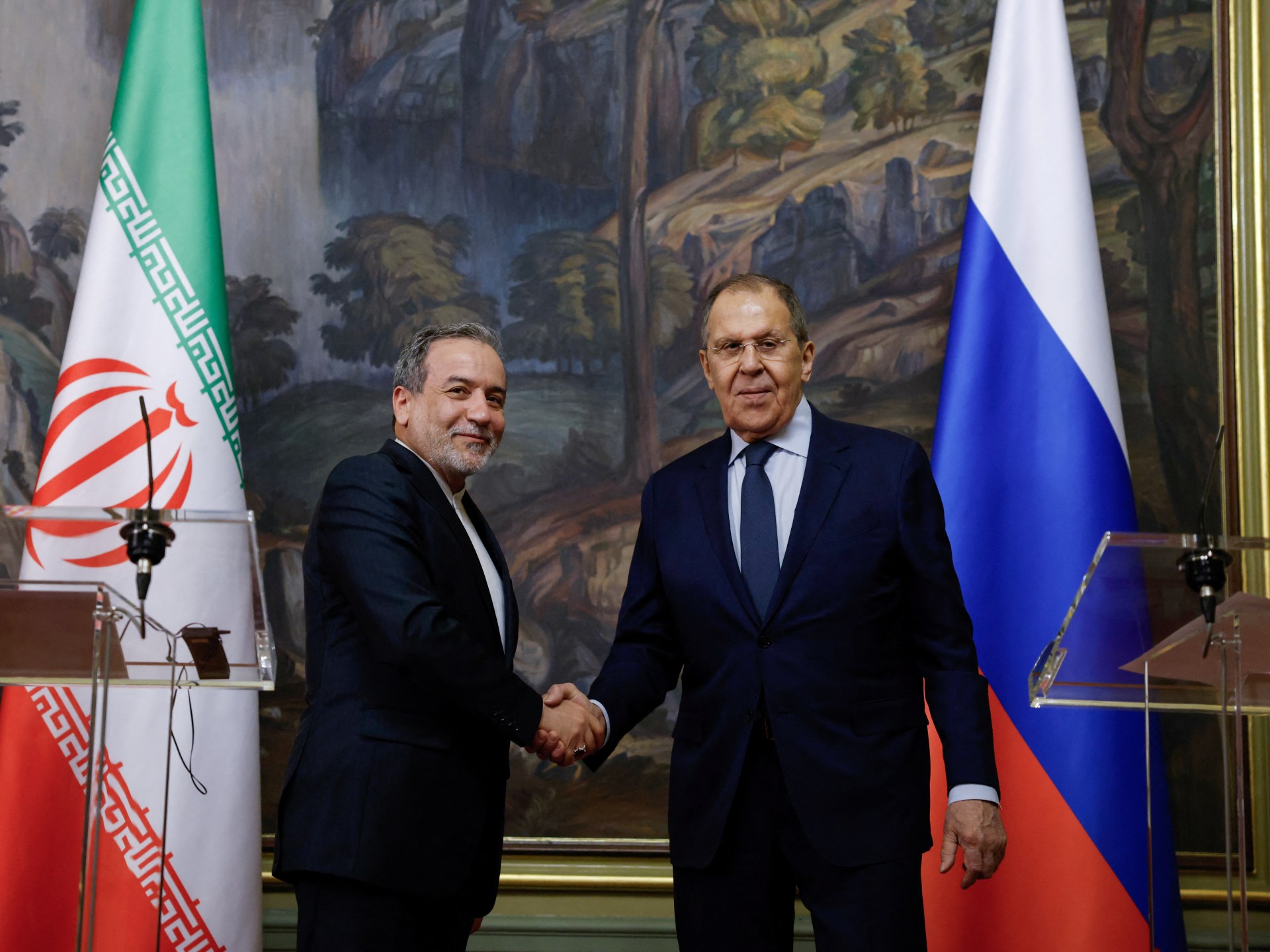
Iran’s Foreign Minister Abbas Araghchi has cast doubt over the intentions of the United States a day before a second round of nuclear talks is set to take place with Washington.
The new round will come a week after the two countries held their highest-level negotiations since US President Donald Trump unilaterally abandoned a 2015 landmark nuclear deal three years later. Iran has since abandoned all limits on its nuclear programme, and enriches uranium to up to 60 percent purity – near weapons-grade levels of 90 percent.
“Although we have serious doubts about the intentions and motivations of the American side, in any case, we will participate in tomorrow’s negotiations,” Araghchi said on Friday during a news conference in Moscow with his Russian counterpart, Sergey Lavrov.
Araghchi will set off on Saturday for Rome for a new round of Omani-mediated talks with US Middle East envoy Steve Witkoff.
“We are fully prepared to pursue a peaceful resolution for Iran’s peaceful nuclear programme,” Araghchi said.
Lavrov said Moscow was ready “to play any role that will be useful from Iran’s point of view and that will be acceptable to the United States”.

Russia, which commands the world’s largest confirmed arsenal of nuclear weapons, has deepened its military ties with Iran since it launched its offensive on Ukraine in February 2022, and has played a role in Iran’s nuclear negotiations in the past as a veto-wielding United Nations Security Council member.
Western countries, including the US, have long accused Iran of seeking to acquire nuclear weapons – an allegation Tehran has consistently denied, insisting that its programme is for peaceful civilian purposes.
Al Jazeera’s Tohid Asadi, reporting from Tehran, said there is “a cloud of mistrust in the air” despite statements made by Araghchi.
“With the talks ahead, there is a perception among Iranians that there is this mistrust that exists pertaining to the United States, but going back to the statement that were heard today … we saw a mix of doubt and hope at the same time,” Asadi said.
“Iran is saying it is not interested in putting other issues … [such as] nuclear capabilities … on the table of negotiations,” he added.
‘Unrealistic demands’
US President Donald Trump has threatened to attack Iran if it does not agree to a deal with the US.
On Tuesday, Iran’s Islamic Revolutionary Guard Corps said the country’s military capabilities were off limits in the discussions.
The official IRNA news agency reported Iran’s regional influence and its missile capabilities, long criticised by Western governments, were among its “red lines” in the talks.
On Wednesday, the Iranian foreign minister said Iran’s enrichment of uranium was not up for discussion, after Witkoff called for it to end.
“If there is similar willingness on the other side, and they refrain from making unreasonable and unrealistic demands, I believe reaching an agreement is likely,” Araghchi said during Friday’s news conference.
Lavrov emphasised that any potential agreement should only pertain to the nuclear issue.
“This is a fundamental point that must be taken into account by those who try to burden the negotiations with non-nuclear issues and thus create a very risky situation,” he said.
Iran told the US during last week’s talks it was ready to accept some limits on its uranium enrichment, but needed watertight guarantees Trump would not again ditch the pact, an Iranian official told the Reuters news agency on Friday, speaking on condition of anonymity.
The official said Tehran’s red lines “mandated by Supreme Leader Ayatollah Ali Khamenei” could not be compromised in the talks, adding that those red lines meant Iran would never agree to dismantle its centrifuges for enriching uranium, halt enrichment altogether, or reduce the amount of enriched uranium it stores to a level below the level it agreed in the 2015 deal.
It would also not negotiate over its missile programme, which Tehran views as outside the scope of any nuclear deal, Reuters reported.
US Secretary of State Marco Rubio said earlier on Friday that the US administration is looking for a peaceful solution with Iran but will never tolerate the country developing a nuclear weapon.
Rubio met with British, French and German officials in Paris and pressed them to maintain sanctions against Iran instead of allowing them to run out.
Israel also reiterated its unwavering commitment to preventing Iran from obtaining nuclear weapons, saying it had a “clear course of action” to prevent this.
“Prime Minister Benjamin Netanyahu and I, along with all relevant bodies, are committed to leading a clear course of action that will prevent Iran from acquiring nuclear weapons,” Defence Minister Israel Katz said on Friday.
-

 Conflict Zones2 days ago
Conflict Zones2 days agoHaiti in ‘free fall’ as violence escalates, rights group warns | Armed Groups News
-

 Lifestyle2 days ago
Lifestyle2 days agoBelievers say microdosing psychedelics helps them. Scientists are trying to measure the claims
-

 Lifestyle2 days ago
Lifestyle2 days agoPicking a team from bars to beam and hoping for 10s: Fantasy leagues in gymnastics are a thing
-
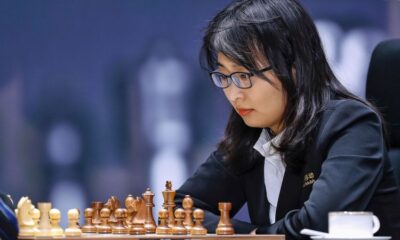
 Sports2 days ago
Sports2 days agoJu Wenjun: Chinese grandmaster makes history by winning fifth Women’s World Chess Championship
-
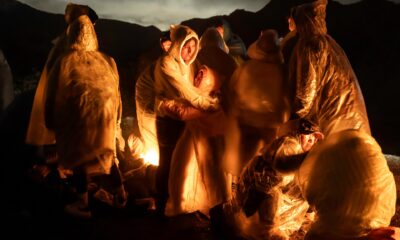
 Middle East2 days ago
Middle East2 days agoPalestinian photographer Samar Abu Elouf wins world’s top photo prize | Gaza News
-

 Sports2 days ago
Sports2 days agoArsenal reaches first Champions League semifinal in 16 years, with Inter Milan also advancing
-
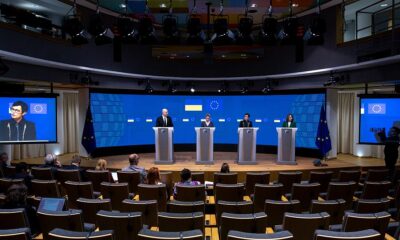
 Africa2 days ago
Africa2 days agoEuropean Union announces new asylum measures
-
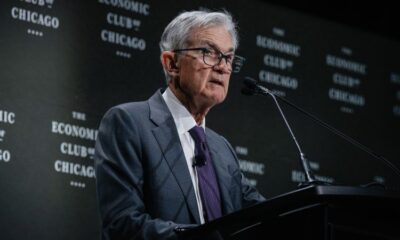
 Europe2 days ago
Europe2 days agoTrump blasts Fed Chair Powell, saying his ‘termination cannot come fast enough’




